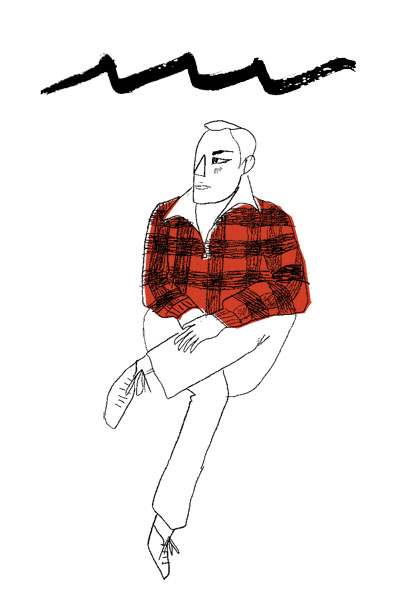Dogs and Other Poems is your fourth book of poetry…what inspired this collection? How long has the process of writing and publishing Dogs taken you? What distinguishes the poems in Dogs from the poems in previous collections?
These things are always mysteries to me, but I began writing poems after walking my dog each morning or evening, or things would come to me during the day. Pretty soon I had around fifty poems written from the point of view of my dog. I think about how different creatures perceive us humans a lot so this was an offshoot of that. These became the core of the book. Other poems accumulated, and after I had enough for a book I began sorting them and working with my editor Allen Frost. My books, other than my two initial chap books, have not been consistent with regard to theme or format; they are rather collections of work I’ve done during different time periods. The poems in Dogs took roughly 2 years to write, put together and publish.
For several weeks now, I’ve been focusing on the issue of getting into the “writer’s” head space. Do you find you have any rituals or methods for getting into the mood to write?
None. A lot of poems come to me when I’m out walking. I’ve been at this long enough that many poems come almost fully formed and don’t require a lot of fiddling. I have never been successful at “creating” or “regulating” or bringing into being the head space that shapes a poem. That’s part of the magic of it. Since I am not a “poet” per se, and write non-fiction as well as fiction, I’m not devastated if I don’t write poetry for months on end. I simply turn to another form of writing.
Do you find that certain content chooses a certain genre?
Well, I think certainly that is true. For me, poems are small packages, and they possess an inward and outward movement (for me). I know that’s not true of all poetry, since there are incredibly long, narrative poems (Beowulf, Merwin’s the Folded Cliffs, The Inferno). So if the idea/impulse/inspiration has a strong narrative arc I turn to fiction. Then it just becomes a matter of how long the arc seems to be, which determines whether it’s a short story or novel. Non-fiction is often just a subject (Wikipedia) that I want to learn more about, and I have several markets for this type of article. I am working on a book about Wikipedia however as well, exploring the way information is produced.
You say all of your poetry “is in some form, praise,”—is this also true of the fiction and non-fiction you write? Do you consider all poetry, anybody writes, a type of praise?
It’s really only true of a certain number of poems in that book (Dogs), so that was a bit of hyperbole.
Not at all. There are multitudes of poetry. Many are condemnations or written in anger. I think a lot about hubris these days, and I also think a lot about my influences. I am extremely grateful that I have been significantly moved and shaped by other voices. No artist is original. We are all an evolution of one voice.
I’d love it if you’d elaborate on who your influences are, and how hubris plays into that.
I’m not sure if (or how) hubris plays into my influences, except that I’m typically drawn to people who seem to have a generous spirit. My mind was wandering a bit there. I have tons of influences – the Black Mountain poets, the San Francisco and New York schools of poetry; Asian poetry, surrealism, language poetry, experimental and avant garde work. One area I haven’t investigated as much as I should is spoken word/slam.
If I can say something else about hubris, is that it seems to eclipse a sense of wonder that is important to me.
How about giving us a little insight into what you’re working on now…
I am primarily working on a novel entitled (tentatively) A Soul Loves Most What Is Lost. The title comes from C.E. Morgan’s amazing novel called All the Living. I’m not sure who she stole it from, but quite possibly the Bible. It’s about a Japanese American woman who is facing death by pancreatic cancer. She was raped in a WW Two internment camp, and is returning to those memories with the intention of confronting one of her rapists.
It’s tough going but I have around 80 pages thus far. It’s tough not only because of the subject matter, but also getting into a woman’s, and a Japanese woman at that, head and soul.
And is your process with this similar to poetry—letting the Muse inform you in the moment?
This varies depending on the day. Sometimes I’ll have a scene in my head that I want to write, and other times (like today) I’ll read back through the previous page or so and let the muse hold my hand. Sometimes we actually cover some ground.






 ">
">